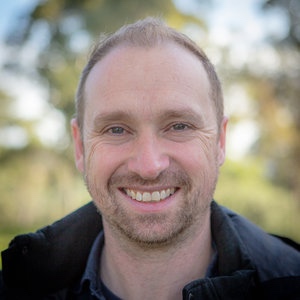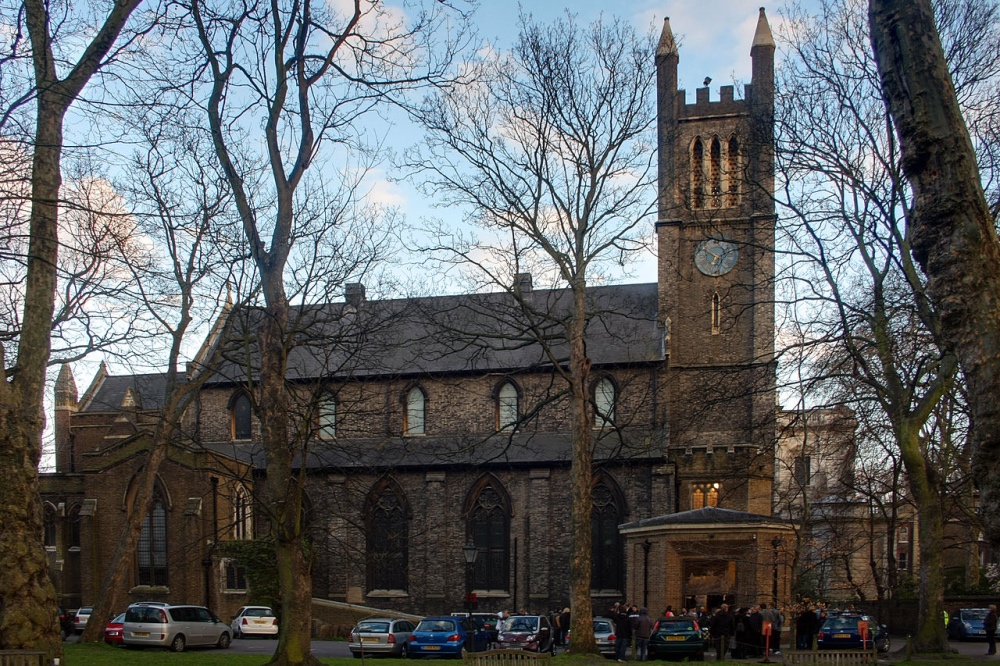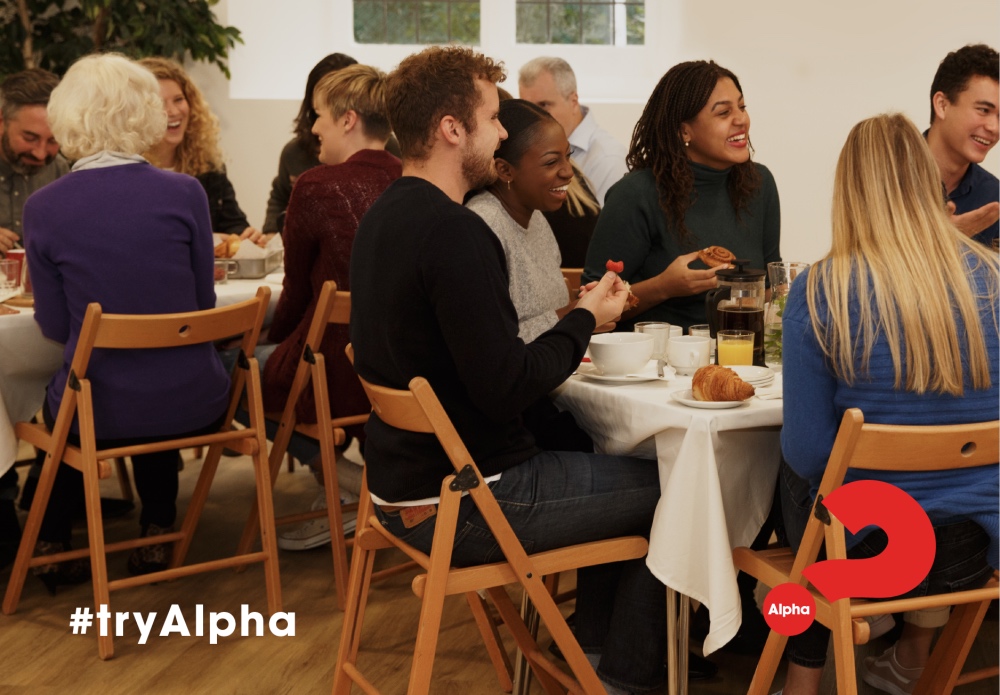
DAVID ADAMS speaks with John Lamerton, national ministry director of Alpha Australia, as the organisation marks the milestone…
Across Australia this week, hundreds, if not thousands, of people will be gathering together in churches, homes, and workplaces to talk about the Christian faith.
They’re participants in Alpha courses, part of what is now a global evangelism effort to introduce people to Jesus Christ and Christianity.
While the origins of the course go back to the 1970s, it was in the 1990s that Rev Nicky Gumbel of Holy Trinity Brompton Church in west London (known to many simply as “HTB”) started on the journey that has resulted in the course now being run in about 100 countries across the globe.
For several decades those countries have included Australia (although, interestingly, the US has yet to take up the course in a big way). And it was in Australia recently that the local branch of the Alpha organisation celebrated news of its 500,000th course participant.
That’s not bad for a country of just 25 million where, according to all reports including the government census, mainstream Christianity is in decline.

Some 45,000 Alpha courses were run in Australia in 2018. PICTURE: Alpha Australia.
John Lamerton, national ministry director at Alpha Australia, says that in contrast to data showing a decline in the number of Christians in Australia, figures from Alpha show a “huge uptake and interest by the Australian public” in the course.
And that’s not just in the overall number of people who have now undertaken the course but also the rate of uptake – Lamerton points out that while in 2016 some 27,000 Australians attended Alpha, in 2017 the figure grew to 38,000 and last year to 45,000.

John Lamerton, national ministry director at Alpha Australia. PICTURE: Supplied.
“[W]e’re seeing a good 10 to 15 per cent growth in the numbers of people attending but that’s obviously because more and more churches are getting involved.”
– John Lamerton, national ministry director at Alpha Australia
“So we’re seeing a good 10 to 15 per cent growth in the numbers of people attending but that’s obviously because more and more churches are getting involved.”
Alpha’s modus operandi is relatively simple – people gather in a small group for a couple of hours each week over a period usually of 11 weeks – to share some food, watch a video or live talk of about 30 minutes (a resource provided by the Alpha organisation) which deals with basic aspects of the Christian faith. They then have a discussion about issues it raises during which people are encouraged to share their personal thoughts and ideas.
Alpha courses, which are free to attend and available in a range of languages (the organisation, which makes the materials free to download, is funded through private donors and grants as well as some royalties from hardcopy books and DVD sales), have been running in Australian churches since as far back as the early 1990s although the organisation didn’t open an office in Australia until March, 1999.
Some 1,260 churches ran courses last year and, over the 20 years since the Australian office opened, there have been some 5,500. The denominational spread of churches over that time has continued to increase.
“If you’d asked me 10 years ago, the majority of churches running Alpha were Anglican but what we’ve seen is an evening out with significant growth in Pentecostal and Catholic churches in the last five to eight years,” says Lamerton, who previously worked in ministry with both the Anglican Church and Churches of Christ as well as, in more recent years, in the aid and development sector.
Having run Alpha in his previous workplace, he joined the organisation after having attended a conference for leaders in London about four years ago.
“It was there that I heard the vision of Alpha – which is the evangelisation of the nations, the renewal of the church and the transformation of society, and my heart broke,” says Lamerton.
“And I said to the Lord ‘If I could serve that ministry in some way, in some capacity in the future, I’d love to do that’ and my prayer was answered a couple of years ago when [Australian national director] Melinda [Dwight] approached me and asked me to join the team in this role.”’

Origin story – Holy Trinity Brompton, an Anglican church in west London, was where the Alpha course was started. PICTURE: David Castor.
Lamerton, who says that a skatepark, laser tag venue and a Tasmanian forest are among the most unusual places he’s heard of the course being run in Australia, agrees that part of the appeal of Alpha to churches, regardless of denomination, is its focus on the basic doctrines that all denominations share.
“What we’ve deliberately done, globally, is focus on the things we all agree on,” he says. “And I guess that is the person of Jesus, His death and resurrection, prayer, [and] the Bible as a foundation to our faith. But what we haven’t gone down is where things have caused division in history within the church so things like baptism or communion and how those are practiced across the different denominations – there’s variance, so we don’t touch on those.”
“What we’ve deliberately done, globally, is focus on the things we all agree on.”
– John Lamerton.
While Alpha can’t provide data on what percentage of people attending an Alpha course go on to become regular church-goers, the organisation’s global data does show that four in five people attending an Alpha course will make some life change.
“So that could be a commitment to follow Jesus and ongoing practicing of that faith in church life,” says Lamerton. “But for some it’s simply giving up something that’s held them back – some form of addiction or oppression. I’ve heard recent stories of young guys actually in a youth detention centre in Brisbane giving up cigarettes and alcohol just because of the work of the Holy Spirit as a result of Alpha.”
He believes the format of Alpha is “part of the genius”.
“People are naturally spiritual beings so they want to explore these spiritual questions – who is God?; who is Jesus? – and I think Alpha, in its format where it invites people to come together around a meal, builds trust, builds connectedness… “ he says.

Promotional poster for an Alpha course. PICTURE: Alpha Australia.
The fact the Alpha course is run over a number of weeks allows for that.
“Usually we don’t see people open up until around week three or four and then they kind of spill their guts a bit more and be vulnerable somewhat in asking those really personal questions or even doubts and fears about the Christian faith,” says Lamerton.
“But once those barricades came down, they are much more open to understanding as well. And I think the meal is just a step into that place…it breaks down the ice quickly, makes people feel comfortable and helps people get to know one another. So that sense of belonging is what we talk about. So we want people to belong before they believe or they behave.”
“Usually we don’t see people open up until around week three or four and then they kind of spill their guts a bit more and be vulnerable somewhat in asking those really personal questions or even doubts and fears about the Christian faith.”
– John Lamerton.
He adds that the way in which the discussion at courses is facilitated is key.
“So a lot of our training and coaching with churches is ‘Don’t answer people’s questions – let them voice their deepest fears, their deepest yearnings, let them get it out and ask the group what they think the responses are, what do they think are the answers’.”
The digital age, meanwhile, has made it easier for Alpha to keep content fresh as well as introduce new courses such as the relatively recently released Alpha Youth Series which has grown in Australia alone from 350 courses in 2017 to 1,100 last year. The organisation has also released a new film series in recent years featuring interviews with prominent Christians including Bear Grylls and plans to release a new marriage course next year.
As for what sets Alpha apart from other courses on Christianity, Lamerton comes back to the way in which the course allows people to investigate things for themselves.
“[I]t listens to people’s questions whereas I think many other forms of evangelism is answering questions before they’ve even asked them. So letting people voice their questions is really important in their spiritual journey.”
For information on Alpha courses in Australia, head to www.alpha.org.au.





